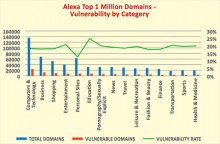Syrian Electronic Army hacks Hostgator, FastDomain and more for hosting terrorist sites
It has been a little while since we heard anything from the Syrian Electronic Army, but now the group has made an appearance once again. SEA has hacked five big-name hosting companies -- Bluehost, Justhost, Hostgator, Hostmonster and FastDomain -- all part of the Endurance International Group.













































































